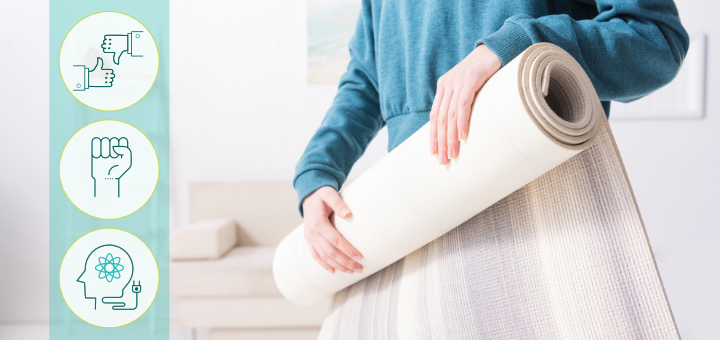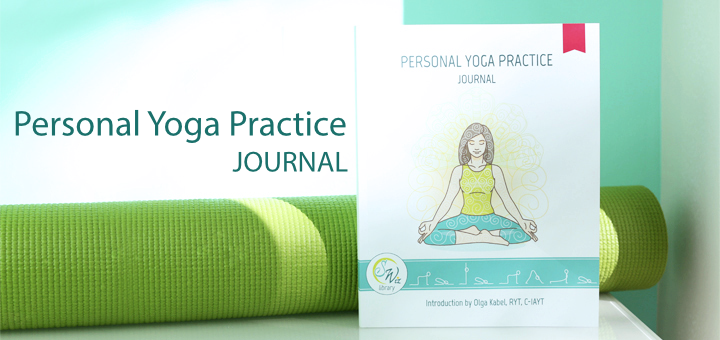Why is it so hard to have a consistent, meaningful and inspiring home yoga practice?
5Two weeks ago I asked you to give me feedback on the content of my blog and answer few other questions on how yoga fits into your life. Thank you so much for taking time to respond! It was incredibly informative and inspiring to read about your relationship with yoga and your plans for the future. And it was very humbling to hear all the praise you heaped on the work that I am doing here – I am so, so grateful! It is incredibly rewarding to hear that my blog resonates with you and inspires your practice and teaching. Thank you!

Couple of questions that I asked on the feedback form dealt with the state of your personal practice and what you would like to change about it. Any discussion about personal yoga practice is very dear to my heart, because I know that it can be a challenge to maintain a consistent, meaningful and inspiring home yoga practice. And it’s even harder to inspire your students to do the same. It appears that about 10% of you are completely satisfied with the way your yoga practice is going, and about 50% are mostly satisfied. This is wonderful. Sounds like you are on the right track. And I would like to do everything I can to support the rest of you – those who want to do better with their personal practice. So today let’s begin our conversation about home yoga practice and what we can do to enhance it, both for ourselves and for our students.
When it comes to home yoga practice, there are three things that we need to address: consistency, content and attitude. These three qualities are intimately linked and influence one another: if you lack consistency, it will affect the content of your practice and your attitude toward it; if you are unsure about content, you are less likely to do the practice and to love it; and, of course, if you are not inspired to practice and feel like it’s a chore, both the consistency and content will suffer.
One thing is certain – you will not do a consistent yoga practice just because you know that it’s good for you. This is simply because you are human. Serendipitously, I was just reading a book by Shawn Achor called The Happiness Advantage and it has an entire wonderful chapter dedicated to positive behavior change and habit building. One of the quotes that immediately caught my attention was “Information is not transformation.” Just because you know that something is good for you or makes you feel better, doesn’t mean that you will do it. Why? Because we are creatures of habit and will always revert to the path of least resistance returning to our ingrained habitual behaviors (even if they are not the best behaviors). The only way to change an existing behavior (not practicing yoga regularly, for example) is to create a new behavior that will replace the old one.
However, there are three major obstacles that get in the way of our best-laid plans:

1. Developing a habit takes time
We need to repeat a behavior many times for it to become a habit and become imbedded in our brains, and that is hard. To develop a habit of consistent home practice, you would need to do it regularly for at least 21 days, and that’s a tall order because more ingrained habits will be fighting you every step of the way.
2. Willpower is a limited resource
Any behavior change based on willpower alone is destined to fail. In one study people were asked to suppress their laughter while watching a funny movie for ten minutes, and then were asked to solve difficult anagrams. Participants performed much worse on the second task. Using this and other similar experiments the researched had concluded that “many widely different forms of self-control draw on a common resource, or self-control strength, which is quite limited and hence can be depleted readily.” In an average day, our willpower is constantly being used for all sorts of mundane tasks, like resisting that donut for breakfast, or staying focused on a tedious task, or being patient with a particularly feisty student. Using willpower alone to make ourselves do yet another thing (even a thing like personal yoga practice, that we know is good for us) is taxing and we are much more likely to divert to our old behaviors.
3. Every instance of a new behavior requires “activation energy”
Activation energy is an extra effort that you need to put in to do something different from what you are accustomed to doing, and you might not muster the power to do that. Every time you intend to do your practice it takes extra effort to get up in the morning, or to stop other tasks you were doing, to change your clothes, to find your mat, to decide what you are going to do – by the time you run through all of that in your head, you already decided to skip it today.
If by now you are feeling hopeless about sticking to your home practice, don’t despair! There are ways to overcome each one of those obstacles on our path to a consistent, meaningful and inspiring yoga practice, and we will discuss them next time. Tune in!
[jetpack_subscription_form]




















How did you get to be so insightful so young! Well done for an excellent summary of the obstacles to practice. I look forward to the solutions!
:))) I cannot wait to share the solutions 😉
Thanks for starting this conversation. As a yoga teacher I struggle with this aspect both in my own personal practice and also my students’. I will await part 2 for the tips to overcome these obstacles
Yep, I deal with it all the time, too 🙂 I think it’s useful to acknowledge that we are human beings, after all, and are programmed to go back to our default mode. But we are also conscious human beings and can override our programming if we are smart about it 🙂
Very wonderful article, madam. It addresses my heart. I am also a yoga teacher and practitioner, but I am not regular in my personal practice. I will impart your points in my life and improve. Thank you.